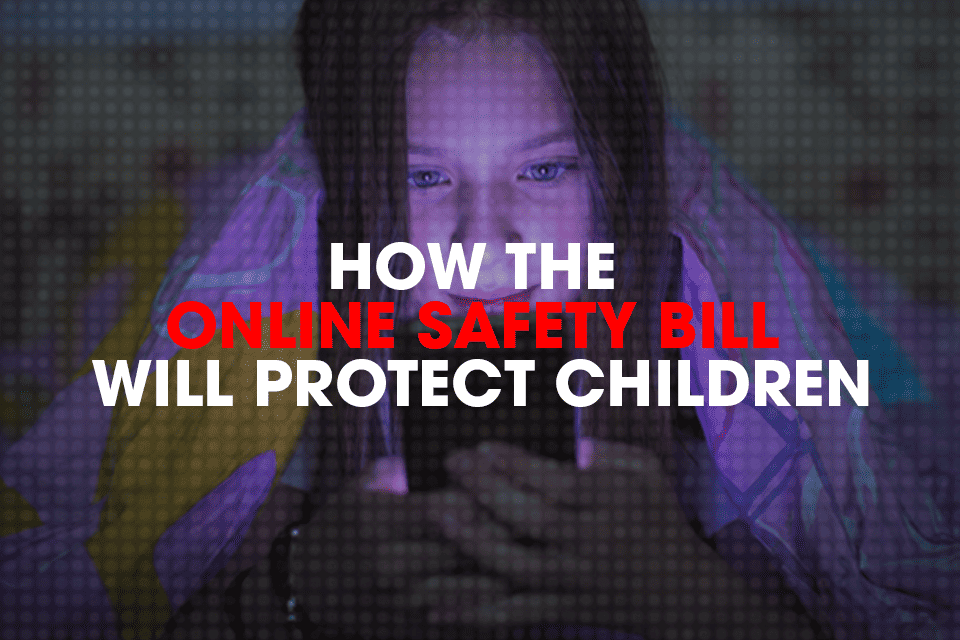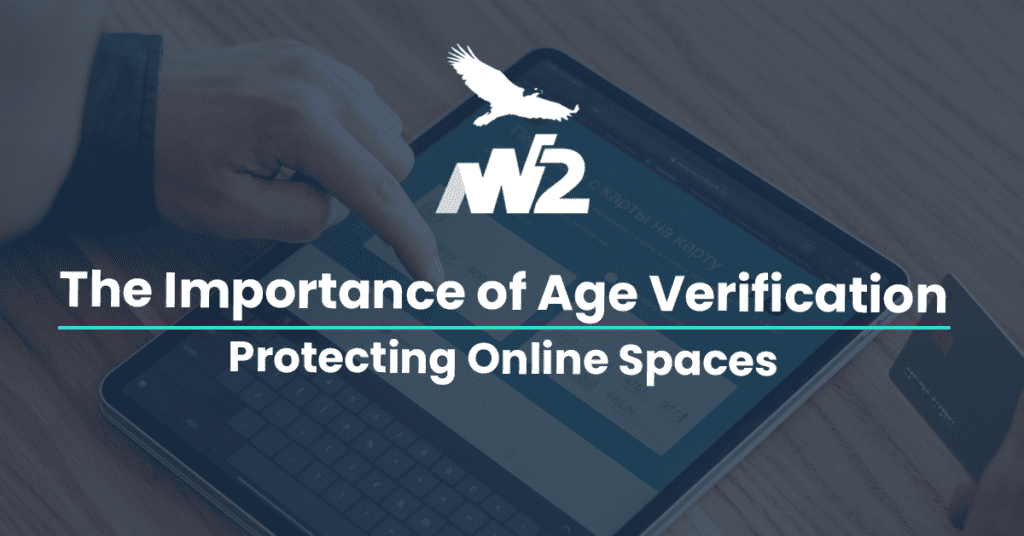In an increasingly digitised world, age verification has become a critical aspect of online interactions. With the vast array of products and services available on the internet, it is crucial to ensure that age restrictions are respected and that minors are protected from accessing inappropriate or harmful content. Verification and protection play a pivotal role in safeguarding online spaces, and its significance cannot be overstated.
What is Age Verification?
Age verification refers to the process of confirming a person’s age to determine if they meet the minimum age requirements for accessing certain online content, purchasing age-restricted products, or participating in specific activities. It involves gathering and validating personal information or documents to establish the user’s eligibility.
Why is it Important?
- Protecting Minors: The primary objective of age verification is to shield minors from accessing age-inappropriate content such as violent or explicit material, gambling websites, or alcohol and tobacco products. By verifying users’ age, online platforms can enforce restrictions and prevent unauthorized access to potentially harmful content.
- Legal Compliance: Verification is often a legal requirement for businesses operating in industries with age restrictions, such as gambling, alcohol, and tobacco. By implementing robust age verification processes, organizations can ensure compliance with local regulations and avoid penalties or legal repercussions.
- Consumer Trust and Safety: Age verification enhances consumer trust by demonstrating a commitment to user safety and responsible business practices. When users perceive that a platform prioritizes age verification, they are more likely to feel secure in their interactions and confident that their personal information is being handled with care.
- Preventing Fraud and Identity Theft: Verification helps mitigate the risk of fraud and identity theft by verifying the authenticity of user-supplied information. It ensures that individuals are who they claim to be, reducing the likelihood of impersonation and protecting users from potential harm.

What is Age Verification Policy?
The age verification policy outlines the guidelines and procedures implemented by online platforms to verify users’ ages. These policies typically include the following components:
- Data Collection: Defines the type of data required from users to establish their age eligibility. This may involve collecting personal information such as name, address, or date of birth. In some cases, additional verification steps like document uploads or identity checks may be necessary.
- Verification Methods: The policy outlines the specific methods employed to verify users’ ages. This can range from basic self-declaration and checkbox mechanisms to more advanced techniques like database checks, third-party age verification services, or biometric authentication.
- Privacy and Data Protection: Emphasises the importance of privacy and data protection. They outline how user information is collected, stored, and secured, ensuring compliance with data protection regulations such as the General Data Protection Regulation (GDPR) in the European Union.
- User Experience: The policy should consider user experience considerations, striving to balance effective age verification with a seamless and user-friendly process. A well-designed verification system minimises friction and frustration for users while still fulfilling its purpose.
The Online Safety Bill in the UK

The Online Safety Bill is a significant development in the United Kingdom’s efforts to enhance online safety and protect users, particularly children, from harmful content and online risks. Here is some important information about the Online Safety Bill and its implications:
- Objective and Scope: The Online Safety Bill aims to regulate online platforms and social media companies to ensure the safety of users and mitigate potential harm caused by harmful content, illegal activities, and abusive behaviour. It seeks to create a safer digital environment by holding online platforms accountable for the content shared on their platforms.
- Duty of Care: The Online Safety Bill introduces a legal duty of care, requiring online platforms to take responsibility for user safety. This means that platforms will be required to proactively identify and address harmful content, implement robust safety measures, and protect users from online abuse, harassment, and age-inappropriate content.
- Regulatory Framework: The bill establishes a new regulatory framework overseen by an independent regulator, most likely Ofcom (the Office of Communications), to enforce the duty of care obligations. The regulator will have powers to monitor compliance, issue penalties for non-compliance, and hold senior management accountable for the safety practices of online platforms.
- Harmful Content Categories: The bill categorizes harmful content into various categories, including but not limited to illegal content (such as terrorism, child sexual abuse, and hate speech), harmful but legal content (such as cyberbullying, self-harm, and disinformation), and content inappropriate for children (such as pornography or violence). The aim is to address a wide range of online risks and protect users from diverse forms of harm.
- Age Verification and Online Platforms: The Online Safety Bill recognizes the importance of age verification in protecting children from age-inappropriate content. It mandates that online platforms offering services with age restrictions, such as adult content or gambling, implement robust age verification mechanisms to ensure compliance with age limits and prevent minors from accessing such content.
- Penalties and Enforcement: The bill grants regulatory authorities the power to impose substantial penalties on non-compliant online platforms, including fines and potential blocking of platforms that fail to adhere to the duty of care obligations. This enforcement mechanism serves as a strong incentive for platforms to prioritize user safety and take proactive measures to mitigate online risks.
The Online Safety Bill represents a significant step toward creating a safer digital landscape in the UK. By establishing a clear regulatory framework, imposing a duty of care on online platforms, and prioritizing user safety, the bill aims to protect individuals, particularly children, from harmful content and online threats.
Industries Requiring Age Verification Solutions
Age verification solutions are crucial for various industries that deal with age-restricted products, services, or content. Here are some key sectors that need to consider implementing robust age verification systems:
- Gaming and Gambling: The gaming and gambling industry is heavily regulated, with strict age restrictions in place. Online casinos, sports betting platforms, and gaming websites must ensure that only individuals of legal gambling age can access their services. Age verification is essential to prevent minors from participating in gambling activities and to comply with gambling regulations.
- Alcohol and Tobacco: The sale and purchase of alcohol and tobacco products are subject to age restrictions in many countries. E-commerce platforms, online liquor stores, and tobacco retailers need effective age verification mechanisms to prevent underage individuals from purchasing these products. Age verification solutions enable businesses to uphold legal requirements and mitigate the risk of selling age-restricted items to minors.
- Adult Content: Websites and platforms that provide adult content, including adult entertainment sites or online dating platforms with age restrictions, must implement stringent age verification measures. Verifying the age of users helps prevent minors from accessing explicit or inappropriate content, maintaining the integrity of the platform and complying with legal obligations.
- Online Retail: Some online retail sectors, such as those selling age-restricted products like knives, fireworks, or certain video games, need to implement age verification processes. Ensuring that customers meet the minimum age requirements for purchasing these items is crucial for legal compliance and responsible business practices.
- Pharmaceuticals and Prescription Medications: Online pharmacies and platforms offering prescription medications often require age verification to ensure that individuals are of legal age to purchase these products. Age verification helps prevent unauthorized access to prescription drugs, ensuring the safety and well-being of users.
- Online Education and Certification: Online platforms that offer educational courses or certification programs with age restrictions, such as professional certifications or courses with minimum age requirements, can benefit from verifying the age of learners ensures compliance with age eligibility criteria and guarantees appropriate access to educational resources.
It is essential for businesses operating in these industries to adopt reliable solutions to meet legal obligations, protect vulnerable individuals, maintain consumer trust, and create a safer online environment.
At W2, we specialize in providing cutting-edge age verification solutions that address the unique needs of businesses across various industries. Our advanced technology and expertise enable us to offer reliable, efficient, and user-friendly services. Contact us today by submitting the contact form here to learn more about how we can help you implement a secure age verification system for your online platform.

